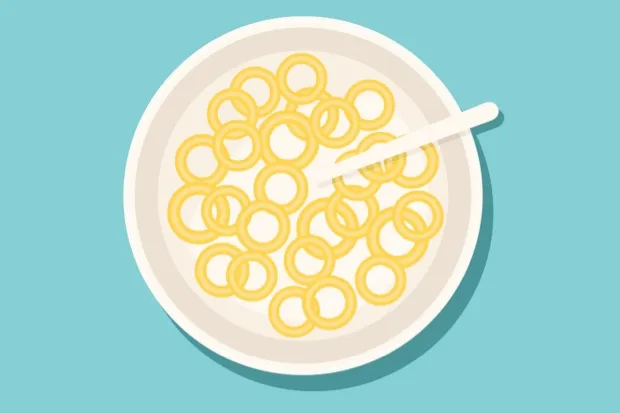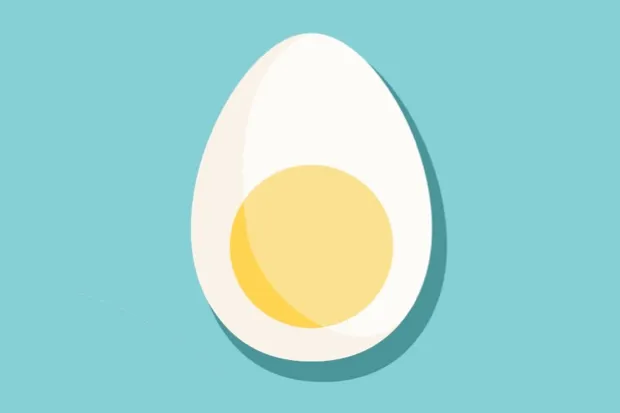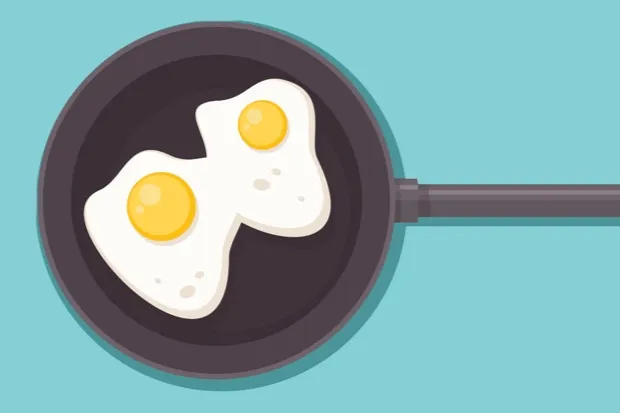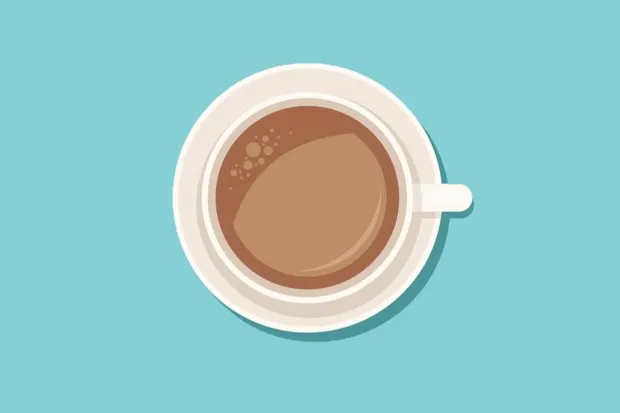Food and science go hand in hand, after all what is a recipe if not a scientific protocol with the registration numbers filed off? If you want to explore the link, where better to start than the first meal of the day.
1
Puffing your cereal with a cannon

To make puffed cereal you start with rock hard grains of wheat or rice. These are then cooked ever so slightly before being placed in what is technically known as a cannon, although it’s more of a bomb to be honest. The grains are sealed in and heated until the pressure in the cannon increases massively. The heat in the cannon combined with the initial cooking turns the starch in the grains into a thick jelly.
Once gelatinised you flip the catch on the cannon lid and the grains explode violently out. As soon as the lid opens, there is a massive drop in pressure that causes all the water in the jelly to vaporise. As is does so, it puffs up the grain which quickly cools, turns back from a jelly consistency to a hard, bubble filled, crispy nugget. The result is puffed wheat or rice crispies. Personally I choose rice crispies every time.
2
Cooking the perfect boiled egg

Cooking a soft-boiled egg, with a perfectly set white and a runny yolk, is intrinsically difficult. The problem is that there are too many variables and any recipe for a boiled egg inevitably leaves you guessing what to do. The time you need to cook your egg for will depend on the size of the egg, the temperature of the egg, the depth of water in the pan, the speed you heat the water and at precisely what point you start the egg timer. Change any one of these and it turns what should be a simple task into random guesswork. Unless that is you apply science.
The protein in egg white turns solid at between 61 ºC and 65 ºC, whereas the protein in egg yolk does not set until you get to 66 ºC to 70 ºC. So, to soft boil an egg, put the egg in water held at exactly 65 ºC. The egg white will set but the egg yolk will remain runny. You will have the perfectly cooked egg every time. The only drawback of this method is that you need to leave the egg in the water for about an hour and a half. Is that too high a price for the perfect egg?
3
Fluorine on the frying pan

Of course, you may prefer to fry your egg and pop in a couple of slices of bacon for good measure, in which case consider why food sticks to the pan. We assume that the metal surface of something like a frying pan is essentially chemically inert, but that’s not the case.
If you take a protein rich food, like bacon or eggs, and heat it above 100 ºC on a metal surface you can start to form chemical bonds between the protein and the atoms of metal in the frying pan. The high temperature shakes apart the bonds in the protein molecules and, desperate to form new bonds, they then attach themselves to the metal of the pan and stick.
The solution is to coat your frying pan with something truly chemically inert. A layer of polytetrafluoroethylene (otherwise known as PTFE or Teflon) creates a layer of bonded fluorine atoms on the surface. Fluorine only ever bonds to one thing and in this case it is bonded to your pan, consequently nothing sticks to it.
4
Beating your egg
And while I am talking about eggs, if you are ever tasked with whisking eggs to make meringue the addition of a little metal can help prevent over beating. And, yes I realise this is not much to do with a conventional breakfast, but who am I to judge what you fancy in the morning.
When you whisk eggs, you breakdown the protein in the egg white and the molecules unravel to form long strands. Those strands then wrap themselves about teeny tiny bubbles and stabilise the foam you are creating. However, if you keep whisking, the strands start to stick to each other, contract and squeeze the water out from between all the air bubbles. The result is over whisked egg and a vile puddle of eggy water topped with weird crumbly foam.
Unless, that is, you use a copper bowl. If you do, a tiny amount of copper will dissolve in the egg white mixture and this stops the broken down strands of egg protein from sticking to each other. They can still stabilise the air bubbles, but you cannot over whisk eggs in a copper bowl.
Read more about eggs:
- Why do hard-boiled eggs sometimes get a grey ring round the yolk?
- Should eggs be stored pointed end down?
- Is it possible for chickens to lay eggs in space?
5
The daily caffeine fix

Caffeine is the most widely used psychoactive drug on the planet. It causes a whole range of pharmacological effects; it prevents drowsiness, increases alertness, boosts athletic performance and improves coordination. On the other hand it also causes vasoconstriction (your blood pressure goes up), increases gastrointestinal motility (it makes you poo), heightens gastric acid secretion (it can give you heartburn) and, in large doses, it is a diuretic (it makes you wee and you become dehydrated).
While it is not technically addictive according to the accepted psychological definitions of the term, it does cause mild physical dependence. All of these effects are down to how the caffeine gets in the way of one of our normal neurotransmitters. Specifically it blocks a chemical messenger called adenosine.
The problem is that our body responds by changing our neuro-chemistry so we become more sensitive to adenosine, which is why regular caffeine drinkers don’t experience the same boost in energy from an espresso than would somebody who only occasionally drinks it. On top of that, even a single cup of coffee a day will make you body over sensitive to adenosine. If you suddenly stop drinking your daily coffee or tea, this over sensitivity causes slight swelling in your brain, which is why you get caffeine withdrawal headaches and feel extra sleepy.
The Science of Food: An Exploration of What We Eat and How We Cook by Marty Jopson is out now (£12.99, Michael O’Mara)
